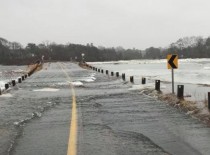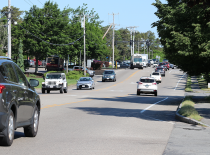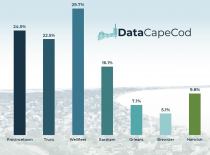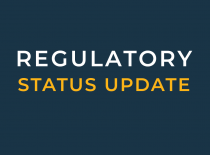All Posts
The Cape Cod Commission’s Low-Lying Roads project is coming to a close this year. Since it was initiated in 2022, the project has identified roadways in the region most vulnerable to flooding from the combined effects of sea level rise and storm surge. Commission staff and contractor Woods Hole Group, working individually with each town, prioritized roads using a combination of state-of-the-art modeling and community engagement.
During a meeting held on January 22, 2024, the Cape Cod Metropolitan Planning Organization (MPO) released the Federal Fiscal Year (FFY) 2024-2028 Transportation Improvement Program (TIP) Amendment 1 for a 21-day public review and comment period.
A review of the Cape Cod Commission's work in 2023.
Public and non-profit housing providers invited to submit letters of interest In-home broadband access is a key component of digital equity.
Under the Unified Planning Work Program, Commission staff have begun a year-long process to analyze five years of crash data from more than 13 interchanges. Staff is studying crash history to determine each crash's exact location, examining the type and severity of crashes, and reviewing existing conditions, such as traffic controls and pedestrian accommodations.
Yarmouth residents interested in the future of Station Avenue gathered at Yarmouth Town Hall on December 13 to learn more about the Station Avenue Corridor Study and share their thoughts on potential improvements.
Built in 1935, the Bourne and Sagamore bridges span the Cape Cod Canal and connect residents, businesses, and visitors on the Cape and Islands to the mainland. The bridges are essential for general transportation, freight, and tourism, and, in an emergency, are critical routes for evacuation.
The Cape Cod Commission has contracted with consultant Eastern Research Group, Inc (ERG) to conduct an economic analysis to better understand the impact a long-term bridge shutdown would have on the region’s economy.
The Lower and Outer Cape, comprised of the towns of Chatham, Harwich, Brewster, Orleans, Eastham, Wellfleet, Truro, and Provincetown, is a highly desirable vacation, second home, and retirement destination. Commission Chief Planner Chloe Schaefer recently presented data on the subregion's economic and demographic trends to the Lower Cape Community Development Partnership’s Board of Directors.
The fourth cohort of the Cape Cod Commission’s Climate Ambassador Program will begin on January 31, 2024. Sixteen students representing six Cape Cod school districts have been selected to participate in this year's program. The participants have identified interests in all facets of climate change including education, policy and politics, local issues, and how to use art to convey climate-related concepts.
This Regulatory Update provides a status on projects currently under review by the Cape Cod Commission. Visit www. capecodcommission.










